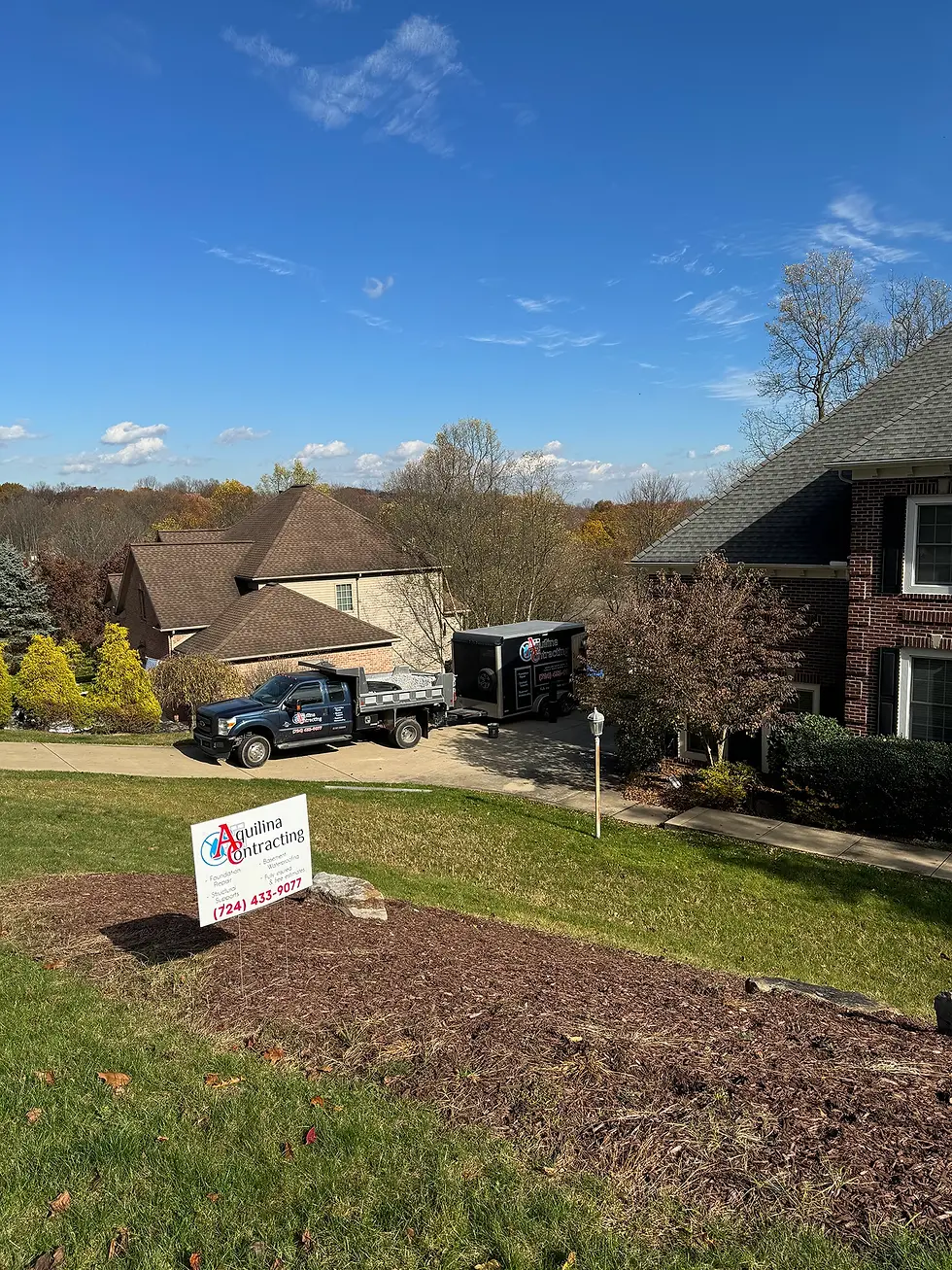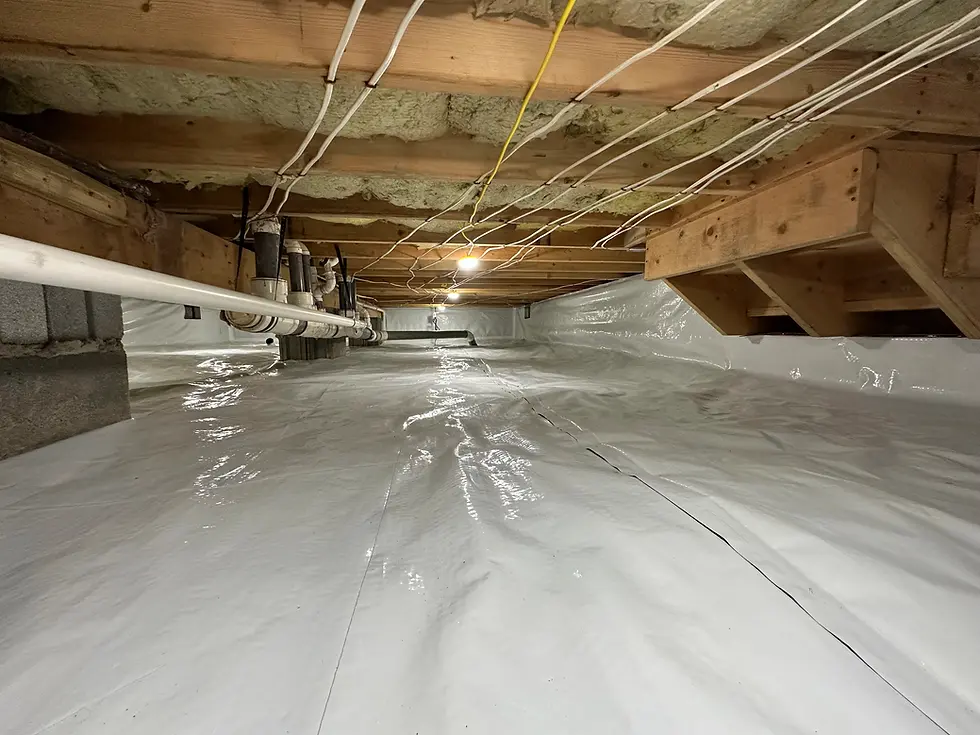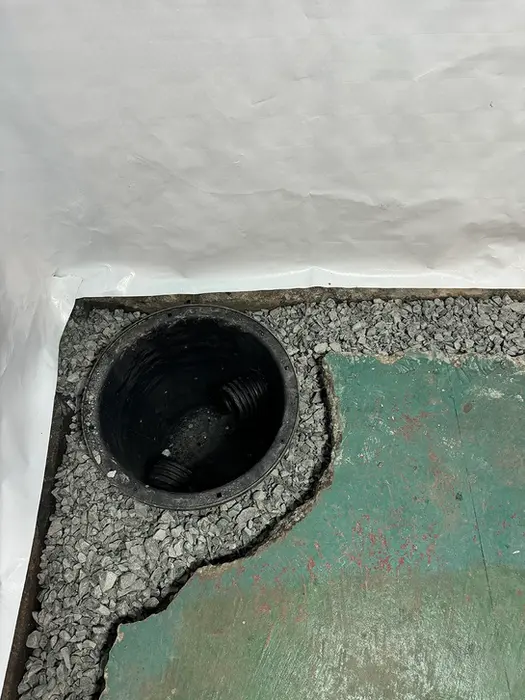
OUR SERVICES
Basement Waterproofing
Our Solutions
Basement waterproofing is essential for protecting your home from water damage, foundation issues, and mold growth.
Aquilina Contracting offers a range of services to keep your home dry, including interior solutions like sump pump and drainage system installations, as well as exterior waterproofing to shield your foundation from groundwater. By addressing water issues proactively, we help ensure the long-term stability and safety of your home.

Interior Basement Waterproofing
Interior basement waterproofing is a highly effective solution to protect your home from water damage and excess moisture. By addressing water intrusion from within, this method involves installing systems like sump pumps, interior drainage channels, and vapor barriers to redirect water away from your basement. It helps to prevent mold growth, foundation damage, and musty odors, ensuring your basement remains dry and usable year-round. Interior waterproofing is ideal for homeowners seeking a less invasive, yet reliable, way to safeguard their property from water-related issues.

Exterior Foundation Waterproofing
Exterior foundation waterproofing is a comprehensive approach to protecting your foundation from water damage by addressing the issue at its source. This method involves excavating the soil around the foundation, applying a waterproof membrane or sealant to the exterior walls, and installing drainage systems like weeping tiles or French drains to divert water away from your home. By preventing water from seeping through the foundation walls, exterior waterproofing offers long-term protection against leaks, cracks, and structural damage. It’s an ideal solution for homeowners looking to ensure maximum defense against groundwater and heavy rainfall, preserving the integrity of their foundation.

Sump Pump Installation
Sump pump installation is a critical step in protecting your basement from flooding and water damage. By collecting and pumping water away from your foundation, a sump pump helps keep your basement dry, even during heavy rainfall or rising groundwater levels. This system works automatically, offering homeowners peace of mind and long-term protection against moisture-related issues.

Drainage System Installation
Drainage system installations are essential for managing water flow around your property, preventing water from pooling near your foundation. Systems like French drains or weeping tiles effectively redirect water away from your home, reducing the risk of basement leaks, erosion, and foundation damage. By improving water management, these installations help maintain the integrity of your property and keep your basement dry.

Vapor Barriers
Vapor barriers are a crucial component in moisture control, designed to prevent water vapor from passing through walls, floors, or ceilings. Installed in basements or crawl spaces, they act as a protective shield, reducing the risk of mold growth, dampness, and structural damage. By keeping unwanted moisture out, vapor barriers help maintain a dry, healthy, and energy-efficient environment in your home.

Basement Dehumidification
Basement dehumidification is an effective way to control excess moisture and humidity levels, creating a healthier and more comfortable living space. By removing moisture from the air, a dehumidifier helps prevent mold growth, musty odors, and potential damage to your foundation or belongings.
HOW WE CAN HELP
Frequently Asked Questions
Basement waterproofing is essential for preventing water damage, mold growth, and structural issues. By keeping water out, it helps protect your home’s foundation, improves air quality, and ensures your basement remains a safe and usable space.
Common signs that your home may need waterproofing include damp walls, musty odors, visible mold, or standing water in your basement. If you notice any of these issues, it’s important to address them quickly to avoid long-term damage.
Interior waterproofing involves systems that manage water once it enters your basement, such as sump pumps and drainage channels. Exterior waterproofing focuses on preventing water from reaching your foundation by installing barriers, drainage systems, and sealing cracks on the outside of your home.
A professionally installed waterproofing system can last decades, depending on the type of solution and maintenance. Exterior systems tend to offer longer-lasting protection, while interior systems may require periodic maintenance to ensure optimal performance.
Yes, waterproofing can increase your home’s value by protecting its structural integrity and improving the safety of your basement. A dry, waterproofed basement is also more appealing to potential buyers and can be used as additional living or storage space.
POTENTIAL ISSUES
Signs Your Basement Needs Waterproofing

Water Leaking Through Walls
If water is leaking through cracks or seams in your basement walls, it’s a clear sign that your home needs basement waterproofing. Over time, hydrostatic pressure from saturated soil can force moisture through even the smallest openings, leading to wet walls, musty odors, and potential mold growth.

Water in Basement After Rain
Recurring basement flooding after heavy rain is a strong indicator of poor drainage or inadequate waterproofing. Without a reliable system in place to manage excess water, your basement becomes vulnerable to standing water, property damage, and potential health hazards.

High Humidity & Condensation
A damp, humid basement creates the perfect environment for mold, mildew, and wood rot. Even without visible water leaks, high humidity can result from groundwater intrusion or a lack of vapor barriers.

Efflorescence on Walls
Efflorescence—a white, chalky residue on concrete or masonry walls—is a common sign of water intrusion. It forms when moisture carries soluble salts to the surface as it evaporates. While not dangerous on its own, efflorescence signals ongoing moisture problems that can lead to more serious foundation issues if left untreated.

Musty Smells & Odors
Musty smells in your basement are often caused by excess moisture, which creates the perfect breeding ground for mold and mildew. These unpleasant odors not only make the space uncomfortable but also signal a hidden moisture problem that can lead to health issues and structural damage if left unaddressed.

Mold
Visible mold growth in the basement is a sign that moisture is lingering where it shouldn’t be. Mold spores thrive in damp, dark environments and can spread quickly, posing health risks to your family and compromising the integrity of your home.
LEARN MORE
What Causes Water In Your Home?
Hydrostatic Pressure from Saturated Soil
When the soil surrounding your foundation becomes saturated with rainwater or groundwater, it creates hydrostatic pressure that pushes moisture through walls and floors. This pressure forces water into even the smallest cracks or joints, leading to damp walls, water stains, or basement leaks. Waterproofing systems—such as interior drainage and wall sealants—are designed to relieve this pressure and keep your basement dry, even during heavy rainfall.
Poor Grading and Surface Drainage
If the ground around your home slopes toward the foundation instead of away from it, rainwater can pool around the base of the house. This poor surface drainage significantly increases the risk of water infiltration and basement flooding. Waterproofing solutions, paired with proper grading and gutter extensions, help divert water away from your foundation and protect your basement from ongoing moisture problems.
Cracks in Foundation Walls or Floors
Over time, foundation walls and floors can develop cracks due to natural settling or pressure from the surrounding soil. These openings provide easy pathways for water to enter your basement, especially during wet seasons. Sealing these cracks and installing a comprehensive waterproofing system ensures that moisture stays out and your basement stays protected from water damage and mold growth.








